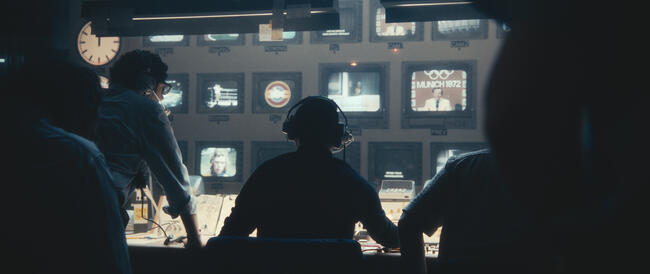As a child, I vividly recall being at the grocery store check-out with my Italian mother and watching her excitedly grab the National Enquirer, boasting some salacious headline (usually something about head transplants or Elvis being alive) and placing it on the belt. When I questioned the veracity of the front-page story (yes, even as a kid), mamma would assuredly respond, “They wouldn’t print it if it wasn’t true!” Did she really believe this? I mean the press, at the time, was thought to be beyond trustworthy. But the National Enquirer was a bullshit yellow-journo rag. But mamma trusted all media.
She had just lived through the ‘70s when Woodward and Bernstein were heroes. This was a world where news wasn’t instantaneously shared as it is today. People had to wait for the press/TV to report breaking news. And, usually, nothing would go to print, or broadcast, unless sources were confirmed, and reconfirmed.
It’s hard to conceive of that kind of media trustworthiness today since most reporting is done either via social media or press using social media as their sources. Too many people instantly trust their feeds and are too-quick to share without doing any kind of investigating. But where does one go to authenticate a story today? We can’t even trust what we see.
That was not the case in 1972 when an American Sports broadcasting team were literally placed in the eye of a terrible and shocking storm, while in Munich, covering the summer Olympics for ABC-TV. These intrepid TV reporters had to quickly adapt to serious news coverage when gunshots were heard and the story of the slaughter of 11 Israeli athletes, by a group of Palestinian terrorists known as Black Sunday, was unfolding.
There have been a number of films and docs about the horrific events that transpired at the 1972 Munich Games including William A Graham’s odd but decent 1976 TV movie, 21 Hours at Munich, Kevin Macdonald’s gripping Oscar-winning doc from 1999, One Day in September and, of course, Steven Spielberg’s 2005 masterpiece, Munich, which focused on the Israeli retaliation for the murders. In addition, the lesser known 1973 doc, Visions of Eight, and the 2012 German TV film, Munich 72, covered the same territory.
But in September 5, German writer-director Tim Fehlbaum and his co-writer Moritz Binder find a fresh, hypnotic and intensely-claustrophobic perspective to tell this oft-told but relevant and necessary story. They brilliantly blend footage of the time and real characters with their semi-fictionalized narrative creating a nail-decimating, suspense-thriller, even though most of us know the ill-fated outcome.
The viewer becomes privy to just how these journalists figured out ingenious ways to investigate, research and probe such an incredulous, quickly unraveling account, the mistakes that were made–with lives on the line–by the German police and by the ABC team, and the outcome broadcast, which was quite the blunder.
Questions of how to cover events become key. What if someone is killed on camera? Is it acceptable to show it on TV? What do we label the group known as Black Sunday? The word terrorist was in its infancy at the time and the staff debates just how careful they need to be in terms of parlance used. Also, these horrors are happening to Jews in Germany. How to handle this angle?
A great part of what makes the film so potent and remarkably effective is the sterling cast, beginning with Peter Sarsgaard as Roone Arledge, then ABC Sports executive (soon network news president), hitting all the right take-charge-it’s-our-story notes. John Magaro, consistently underrated, is terrific as Geoff Mason, a newbie sports producer who finds himself in charge of communicating the story of the decade to the world. And Leonie Benesch, so extraordinary in last year’s International Feature Oscar nominee, The Teacher’s Lounge, plays Marianne an essential German interpreter grappling with this type of insanity happening in her country but also doing her job—better than her male co-workers. Hers is a perfectly-calibrated turn. Marianne is quiet and helpful, except when she needs to assert herself.
September 5, 1972, is the first time such a terrible act of terrorism was broadcast live worldwide, with close to a billion people tuning in. It’s hard to think of any event today that would attract and sustain that large an audience live.
With the rise of antisemitism in the world—even among our college-educated youth–films like September 5 become incredibly important when it comes to truth telling, word usage and not necessarily believing everything you initially watch or read (sorry, mamma!). And while it’s human to want to look at both sides of a story, sometimes you need to call out terrorism for what it is.
The film is also a harsh and glaring reminder of a time when media reports were actually real, when the press worked their asses off to get a story as right as was humanly possible— not being able to rely on the internet, social media or AI. Imagine. Can you?
September 5 will open in theaters exclusively on December 13, 2024, and will go wide on January 17, 2024.









